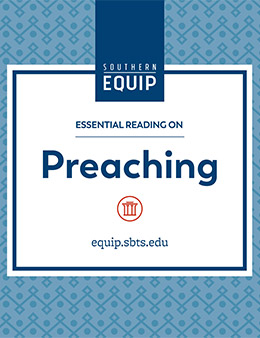The Recovery of True Worship
Worship is the purpose for which we were made — and only the redeemed can worship the Father in spirit and in truth.
In The Brothers Karamazov, Fyodor Dostoyevsky’s Grand Inquisitor offers this insight into fallen human nature: “So long as man remains free he strives for nothing so incessantly and so painfully as to find someone to worship.”
Though the Grand Inquisitor falls far short as a reliable guide to theology, at this point he is surely correct. Human beings are profoundly religious — even when we do not know ourselves to be — and humans incessantly seek an object of worship.
Yet, human beings are sinners, and thus our worship is, more often than not, grounded in our own paganism of personal preference. The fallen human heart is indeed an “idol making factory,” always producing new idols for worship and veneration. That corrupted factory, left to its own devices, will never produce true worship, but will instead worship its own invention.
But Christians are those who have been redeemed by the blood of the Lamb, incorporated into the body of Christ and are then called to true worship as regulated and authorized by Scripture. Worship is the purpose for which we were made — and only the redeemed can worship the Father in spirit and in truth.
But, do we?
The British philosopher Roger Scruton once advised his fellow philosophers that the best way to understand what people really believe about God is to observe them at worship. Theology books and doctrinal statements may reveal what a congregation says it believes, but worship will reveal what it really believes. If so, we are in big trouble.
Years ago, A.W. Tozer lamented that many churches conceive of worship as “a maximum of entertainment and a minimum of serious instruction.” Many Christians, he argued, would not even recognize worship as “a meeting where the only attraction is God.” True 50 years ago, those words now serve as a direct indictment of contemporary worship.
RELATED: Expository preaching and the recovery of Christian worship – Albert Mohler
At the worldview level, we must face the fact that modernism collapsed transcendence in many minds. The focus of worship was “horizontalized” and reduced to human scale. Worship was transformed into an experiment in “meaningfulness” as judged by the worshiper, not an act of joyful submission to the wonder and grandeur of God.
While all Christians affirm the necessity and reality of the experiential dimension of faith, the experience must be grounded in and accountable to the Word of God.
Hughes Oliphant Old once summarized Christian worship in terms of “its sense of the majesty and sovereignty of God, its sense of reverence, of simple dignity, its conviction that worship must above all serve the praise of God.” As Old recognized, this path of renewal “may not be just exactly what everyone is looking for.”
Looking for it or not, this is the only path back to the worship God seeks.




